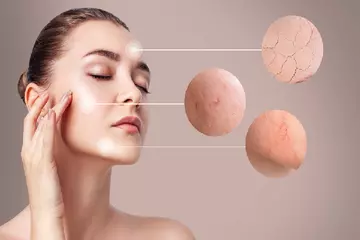What is vitamin A deficiency?
Vitamin A, also known as retinol, is a fat-soluble vitamin. It is required for the formation of a photoreceptive eye pigment known as rhodopsin, which is needed for normal coloured vision and night vision. Apart from this, vitamin A helps in cell maturation and growth, immune function and foetal development. Deficiency of vitamin A leads to several disorders, especially related to the eye and vision.
What are its main signs and symptoms?
As vitamin A performs several functions, thus, its deficiency leads to several conditions and multi-systemic symptoms. These signs and symptoms include:
- Night blindness – Poor vision during low light and night time (this is one of the early symptoms of vitamin A deficiency).
- Xerophthalmia – Eyes get keratinized, this causes drying and thickening of conjunctiva and cornea. This causes difficulty in vision, even during day time.
- Bitot spots – Conjunctiva gets deposited with waste epithelial cells.
- Keratomalacia – Cornea becomes hazy and eroded. This is a relatively permanent injury.
- Impaired immune reactions.
- Skin – becomes keratinized, resulting in dryness, scaling and itching.
Symptoms of vitamin A deficiency are more pronounced in younger children and their growth may be retarded. Severe deficiency in these children may result in death.
What are the main causes?
Vitamin A deficiency is primarily caused by poor intake of vitamin A, i.e. dietary deficiency caused by faulty dietary habits or not eating food that has vitamin A. Apart from this, secondary deficiency of vitamin A is caused either by reduced bioavailability of provitamin A and hindrance in the absorption, storage or transportation of vitamin A. Absorption of vitamin A can happen due to pancreatic insufficiency, celiac disease, chronic diarrhoea, bile duct obstruction, liver cirrhosis, cystic fibrosis and giardiasis.
How are they diagnosed and treated?
Usually, a thorough medical history and clinical examination hints the diagnosis of vitamin A deficiency. Apart from clinical findings,
- Serum retinol levels – It usually helps in confirming the diagnosis
- Ophthalmologic evaluation – evaluation with ophthalmoscope and also slit lamp biomicroscopy and confocal microscopy can help in confirming the diagnosis of eye conditions.
- Therapeutic trial – Improvement in the symptoms, after giving vitamin A supplements, can also confirm that it was vitamin A deficiency that caused all these symptoms.
Treatment of vitamin A deficiency can be done either by increasing the intake of food rich in vitamin A or by oral or intravenous supplementation for vitamin A.
- Food for Vitamin A – includes egg yolks, cod liver oil, butter, cheddar cheese, carrots, spinach, kale, cabbage, dandelion, red pepper etc.
- Supplements: Oral or injectable vitamin A (Vitamin A palmitate) can also help in treating the deficiency.

 Doctors for Vitamin A Deficiency
Doctors for Vitamin A Deficiency  OTC Medicines for Vitamin A Deficiency
OTC Medicines for Vitamin A Deficiency



















